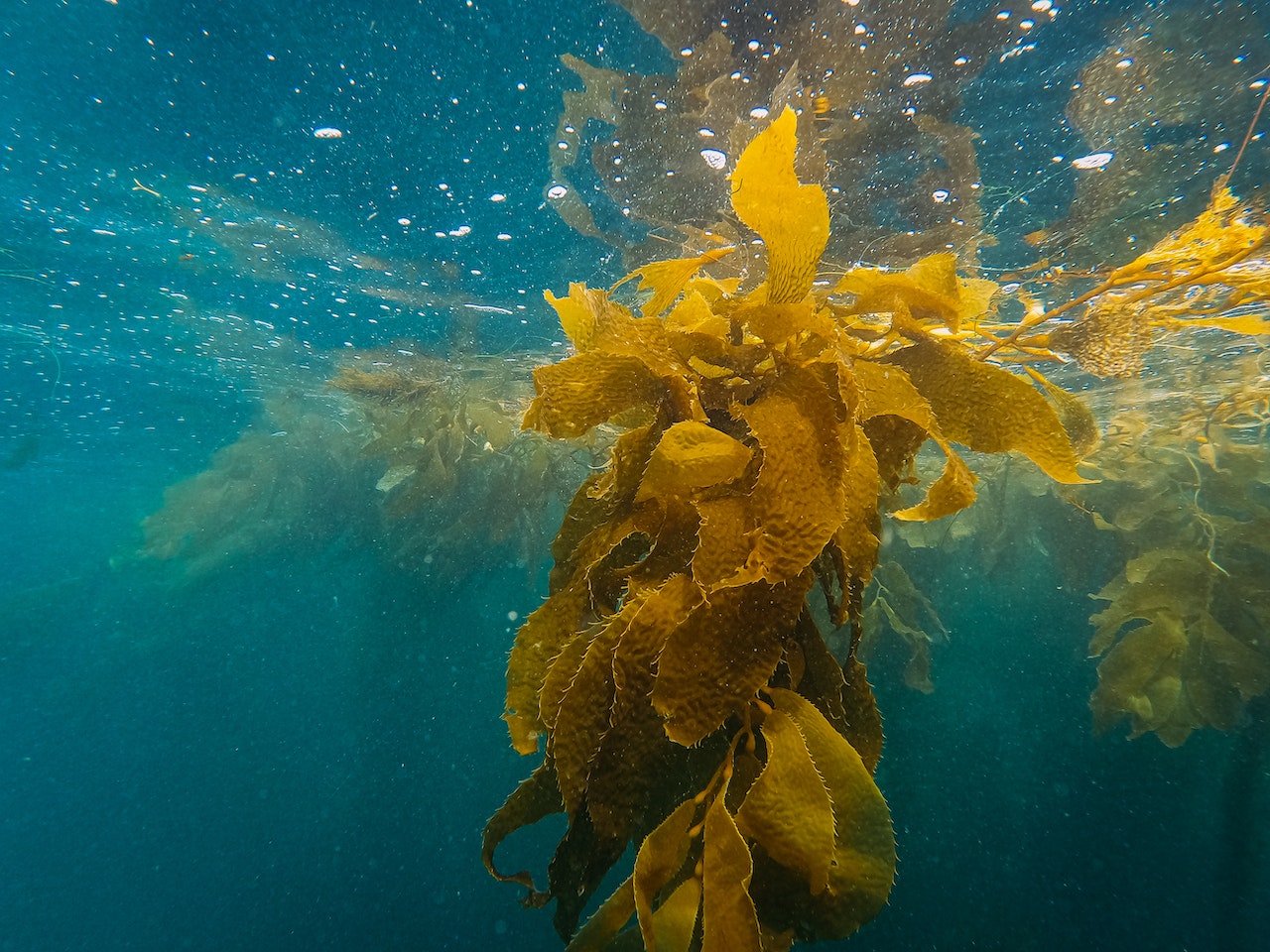Kelp, also known as giant kelp, is a form of seaweed that is incredibly important to marine ecosystems. It is one of the species that can grow the quickest in the world and can reach up to two feet every day. Along rocky shorelines and in kelp forests, it is possible to find it in a variety of locations across the world, such as in the North Atlantic, the Pacific Northwest, and along the shores of both Australia and New Zealand. Kelp is a crude algae plant that does not have any roots, stalks, or leaves, and it has a holdfast that allows it to attach itself to rocks. Additionally, it does not possess a vascular system, which means it is unable to circulate water and nutrients throughout its body.
As both a food and a natural resource, kelp can be put to various applications, including staple cuisine, dishes, fertilizer, animal feed, and as a thickening ingredient in edible goods. Kelp is a versatile plant that has many uses and benefits, from its role in marine ecosystems to its use in traditional cuisine and as a source of iodine and other minerals. In Japan, it is commonly used in dishes such as stews, salads, and soups, as well as in the preparation of dashi, a type of soup stock. It is also used in dietary supplements and health food items and is a staple cuisine in many different cultures. Kelp is an excellent source of vitamins and minerals, vitamins, minerals, and vitamins A, C, and K, making it a great choice for those looking to reduce their weight. The drying process for kelp can take anything from a few days to a few weeks, and it is dried using the sun or a dehydrator.
Because of its high nutritional content, kelp is frequently utilized as a fertilizer. When kelp is dried and ground into a fine powder, it can be used as a dry fertilizer in the garden or as a liquid fertilizer by adding water. Nitrogen, potassium, phosphorus, magnesium, calcium, iron, and zinc are only some of the essential minerals and trace elements found in kelp. As the kelp decomposes, it releases these nutrients gradually, providing a consistent supply of food for plants. Kelp fertilizer has several benefits over conventional fertilizers, including improved plant health. It won’t hurt the environment or your plants since, for one thing, it’s all-natural and organic. Because of its minimal salt concentration, it may be used on many different kinds of plants without harming their roots.
Fertilizers made from kelp may be used on almost any plant, from edibles to ornamentals. It can be used as a foliar spray on the leaves or dug into the soil. In fact, some green thumbs utilize it to jumpstart their seedlings by combining it with dirt as a seed-starting medium. If you want to give your plants a boost in health and vitality without worrying about any negative side effects, kelp fertilizer is the way to go. It’s worth looking into kelp fertilizer whether you’re a master gardener or just want to maintain your houseplants in good shape.
In conclusion, kelp is a fascinating organism that has many uses and benefits. From its role in marine ecosystems to its use in traditional cuisine and as a source of iodine and other minerals, kelp truly is a wonder plant of the sea. Whether you’re looking to incorporate more seaweed into your diet or simply appreciate the beauty and complexity of marine life, kelp is definitely worth learning more about.

